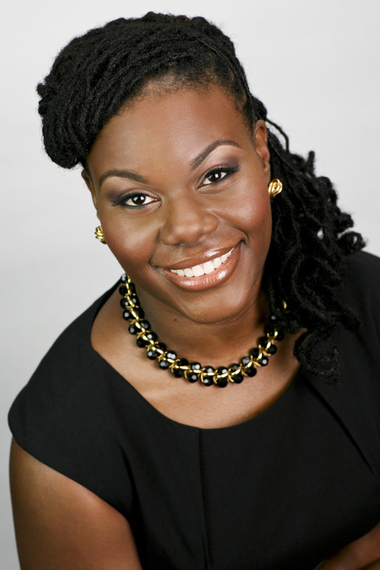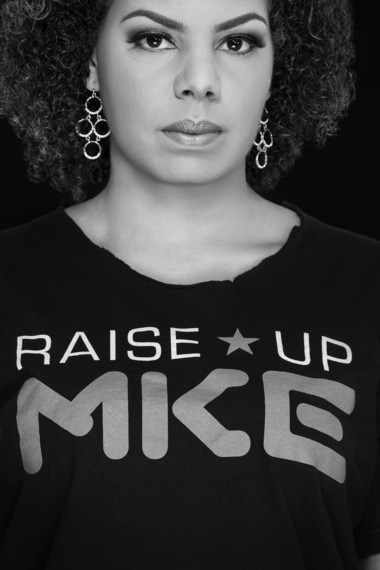By Jennifer Epps-Addison and Gloria Walton
In three Republican presidential debates - the most recent on Wednesday - and one Democratic debate, we've heard few specifics about how to help the 106 million Americans living on the brink to sustain themselves.
On Wednesday, the Republican candidates talked about their weaknesses, whose tax plan makes the most cuts and even gambling on online fantasy football leagues.
But the candidates didn't address - and were not asked by the CNBC moderators - about one critical topic: A specific plan to help those who need the most help in our economy, a "new New Deal for people of color." Hillary Clinton floated the phrase during the first Democratic debate, but we've yet to see any details from anyone behind it. This might turn out to be a cynical throwaway line or it might be the spark for a real conversation about how to rebalance our economy so that it works for everyone.
America needs to be talking about this idea. A call for a New Deal-style boldness in reversing America's disinvestment in areas where people are most struggling is a potential game changer for the national conversation and presidential race alike.
As leaders of grassroots organizations in California and Wisconsin working to help people of color find access to good-paying jobs, we see the difficult choices that families who can't make ends meet have to make, often having to choose between paying their rent or their water or electricity bills. These families can't wait any longer. They need investments in their communities that create millions of good jobs.
Any proposed new New Deal must address two defining issues of this generation: the growing disparity between the wealthy few and the rest of us and the effects of climate change, both of which disproportionately hurt people of color.
In Wisconsin, a new New Deal means the opportunity to bring meaningful change to the failed political priorities of Governor Walker that have made the state a leader in some of the worst racial disparities in the nation.
Halting Wisconsin's growing income gap is not impossible, but requires action. Voters must demand action for Black families trapped by the exploitation and criminalization of our communities, action for immigrant families that deserve the opportunity to see their hard work translate into shared prosperity and action for the state's rural communities where Factory Farms and Wal-Mart have replaced family-owned businesses that treated people with dignity and built the great middle class.
One way to close the gap is by raising wages. In Wisconsin, the minimum wage is $7.25. Women, especially women of color, make up the majority of minimum wage workers. A new New Deal should follow the footsteps of Wisconsin Jobs Now, which is working to guarantee working parents, particularly moms, a fair schedule with access to full-time work that allows them to meet their family and work responsibilities.
Another way to guarantee good jobs for everyone is creating a green jobs economy. In California, a new New Deal would respond to the climate crisis that has left people in disinvested neighborhoods drinking dangerous levels of contaminated water and breathing more hazardous air, which has led to record rates of asthma, especially among young children. Any proposals must set targets to reduce greenhouse gases and develop renewable energy. Meeting these targets requires public and private investments in infrastructure that will generate millions of new jobs.
The moment is now to create the opportunity for high-quality, inclusive and accessible green jobs. California, home to strong unions and prevailing wage laws, has models for the creation of green jobs that pay good wages, benefits, and training and advancement opportunities. And just like in the original New Deal, the public sector has led the way in investment and the implementation of these job models.
Clear and specific policy directives and standards are needed to ensure that green jobs translate into good-paying jobs. These jobs require new worker skills. Strategic Concepts in Organizing and Policy Education (SCOPE) in South Los Angeles is a leader in developing green job career opportunities in the public sector.
If we commit to a new New Deal, we can build an America that puts families first, rebalancing our economy to stop the flow of jobs, capital and talents out of struggling neighborhoods and invest in the people and places being left behind.
The focus must be on unleashing the skills, talents and enterprise of the people and places that are struggling the most. This means investing in the black families living in inner cities ravaged by racial profiling and economic rules that steal away investments and opportunity. This means targeting resources at brown families living in neighborhoods where there is plenty of air pollution, shoddy roads and vacant lots but no good jobs. This means reinvesting in white families in rural areas who are wondering how they are going to put food on the table for their families.
America can achieve this with a 21st-century, New Deal-inspired work program that invests at least $200 billion a year in direct creation of millions of good jobs for disinvested places and people. Now is the time to have a national conversation about the investments we are willing to make in America's most disinvested places.
Epps-Addison is executive director of Wisconsin Jobs Now. Walton is president and CEO of Strategic Concepts in Organizing and Policy Education in South Los Angeles (SCOPE).


